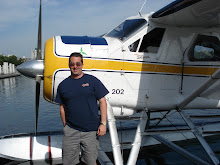Henry Philip Folland was an English aviation engineer and aircraft designer.
He worked at the Royal Aircraft Factory at Farnborough from 1912,where he was the lead designer on the S.E.5 during the First World War. He also designed the Ruston Proctor Aerial Target, an anti-Zeppelin pilotless aircraft to use A M Lows control systems.
He left the Royal Aircraft Factory in 1917, joining the Nieuport & General Aircraft company as chief designer designing the Nieuport Nighthawk, which was adopted as a standard fighter by the Royal Air Force but did not enter service owing to the failure of its engine.Nieuport & General ceased operations in 1920 and his services were taken up by the Gloster Aircraft Company, who had built Nighthawks under license during the First World War, joining them in 1921.He was the chief designer for Glosters for many years,and numbered among his successes the Bamel racer—winner of the aerial Derby in 1921, '22 and '23—and the Gloster I I I , IV and V Schneider Trophy racing seaplanes. Fighters bearing the Folland stamp were the Grebe, Gamecock, Gambet, Goldfinch, Gauntlet and Gladiator biplanes, and the F.5/34.
He leftthe company in 1937, following the takeover of Gloster by Hawker, feeling that Hawker designs would be favoured over his own. He brought the British Marine Aircraft Company at Hample, near Southampton, renaming it Folland Aircraft Limited.
skip to main |
skip to sidebar
Blog Archive
-
▼
2007
(32)
-
▼
April
(17)
- Lord Brabazon of Tara 1884-1964
- Henry Phillip Folland 1889–1954
- Frederick Handley Page 1885-1962
- Sir Geoffrey de Havilland 1882-1965
- Sir Robert Mclean 1884-1964
- Wilfred George Carter 1890-1969
- Sir Archibald Russell 1904-1995
- Sir Sydney Camm 1893–1966
- Air Commodore Sir Frank Whittle 1907-1996
- Roy Chadwick CBE 1893–1947
- Albert G Elliot CBE 1889-1978
- David Keith-Lucas CBE 1911-1997
- Sir George Robert Edwards 1908-2003
- Sir Barnes Neville Wallis 1887-1979
- Reginald Joseph Mitchell CBE 1895-1937
- Joseph 'Joe' Smith CBE 1897-1956
- 'Teddy' William Edward Willoughby Petter 1908-1968
-
▼
April
(17)
